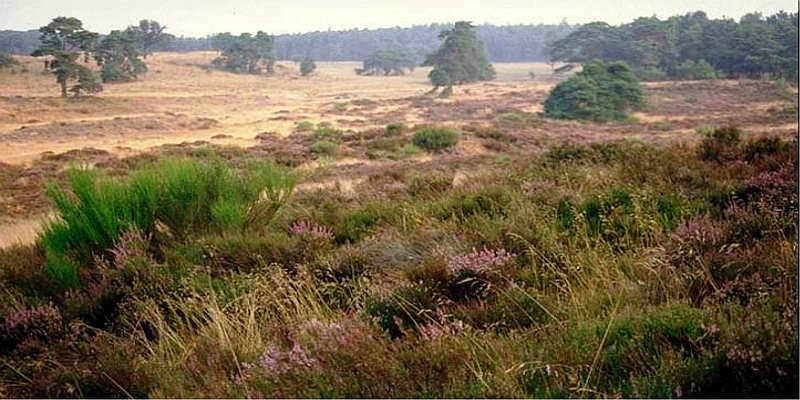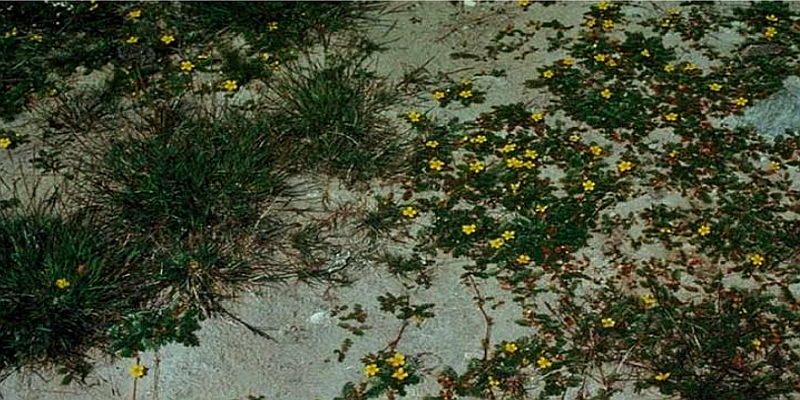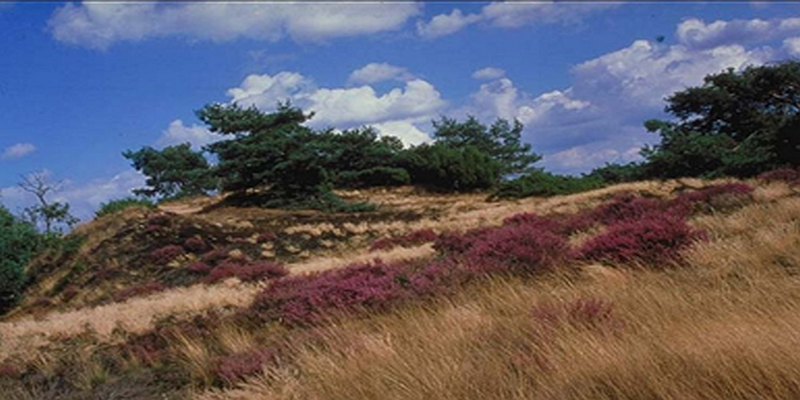09. Extant habitat types function as harbors of evolutionary heritage

Extant habitat types function as harbors of evolutionary heritage
Habitats within regions are important for the maintenance of past diversification of plants, possibly no less important than different climatic zones. By changing micro-climates and favoring strong competitors across a century, humans have threatened the macro-evolutionary heritage from ancient geological epochs. We show that declining habitat types are particularly valuable as they harbor many lineages from ancient epochs, notably the Paleogene. This evolutionary value would go unnoticed with classical parameters such as species richness or phylogenetic diversity. Photo (Genisto-Callunetum on Posbank in the Nationaal Park Veluwezoom) was obtained from SynBioSys Netherlands version 3.3.3 produced by Dr. Stephan Hennekens, with his permission. Photo by M.A.P. Horsthuis (fotonr. 09092)Projects:
Recent papers on extant habitat types function as harbors of evolutionary heritage
Prinzing, A., Pavoine, S., Jactel, H., Hortal, J., Hennekens, S.M., Ozinga, W.A., Bartish, I.V., Helmus, M.R., Kühn, I., Moen, D.S., Weiher, E., Brändle, M., Winter, M., Violle, C., Venail, P., Purschke, O.,...
Anthropogenic threats to evolutionary heritage of angiosperms in the Netherlands through increase in high-competition environments
We identified, for the first time, the interface between present habitat types and past geological epochs. We showed that habitat types act today as ‘museums’ or as ‘cradles’ of evolutionary...
read more...Eco-evolutionary feedbacks in habitats at a regional scale
It is well established that different biogeographic regions may harbor different levels of macro-evolutionary diversification possibly reflecting the regional environments. In this project we study levels of macro-evolutionary diversification and...
read more...



